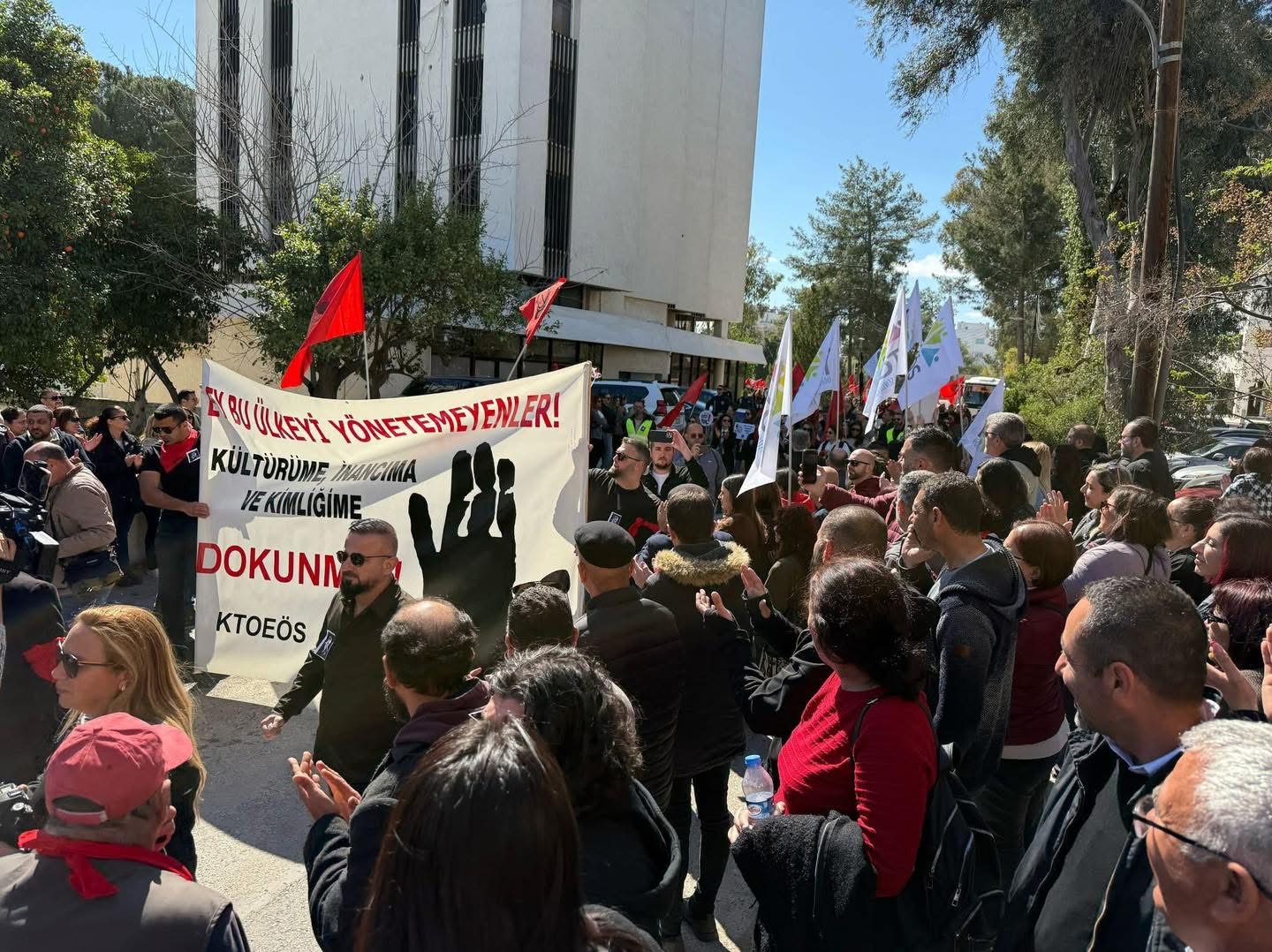The issue of whether girls should be allowed to attend public schools in the north while wearing hijabs returned to the fore on Tuesday, with Cyprus Turkish secondary education teachers’ trade union (Ktoeos) secretary-general Tahir Gokcebel calling out “agents” from the Turkish embassy in Nicosia whom he said “ensured” that headscarf-clad children would enter public schools.
“Yesterday, agents from the Turkish embassy in Nicosia, in collaboration with the education ministry, ensured the entry of two headscarf-clad children into the Bekirpasha high school and the Ataturk vocational high school,” he told Kibris Postasi TV.
He described the move as an “ideological structure” being created by the “AKP regime” in Turkey, which he said is “aiming to establish through its efforts the educational system of an impoverished society”.
The matter of headscarves grabbed headlines in the spring, with the ruling coalition having initially legalised the wearing of them to school in March.
It then faced a fierce backlash from teachers, the majority of whom are staunchly secular, before withdrawing the law and reinstating it the following month.
Turkish Cypriots rejected the law in large numbers, taking to the streets of Nicosia in their thousands on three separate occasions.
In the early part of the summer, teachers took the law to court, with that case having been suspended indefinitely pending a final decision in June.
The matter even attracted an intervention on the part of Turkish President Recep Tayyip Erdogan in May.
“If you try to mess with our girls’ headscarves in the Turkish Republic of Northern Cyprus, I am sorry, you will find us against you,” he said.
One of the key battlegrounds during the saga was the Bekirpasha high school, which is located in Trikomo, with teachers having been locked out of the school by the ‘education ministry’ in May as tensions reached a head over exam timetable changes brought about by the hijab controversy.
The exams had been cancelled in March when teachers refused to work after the ruling coalition legalised hijabs at schools, and a small number of children arrived at the Trikomo school wearing religious garments.






Click here to change your cookie preferences